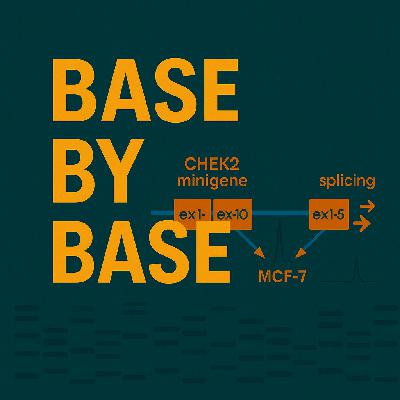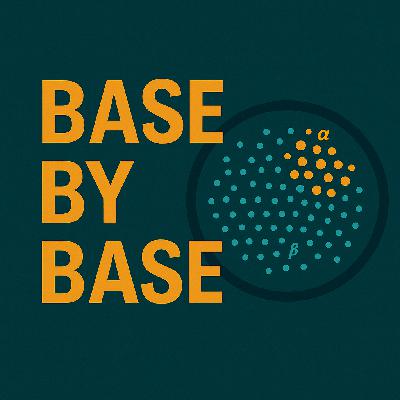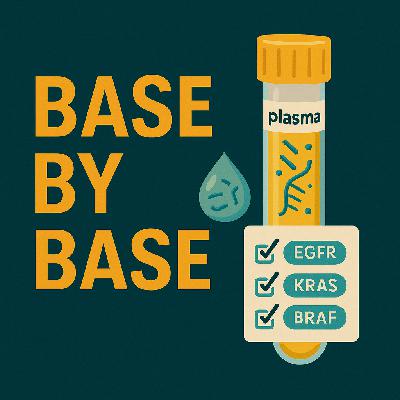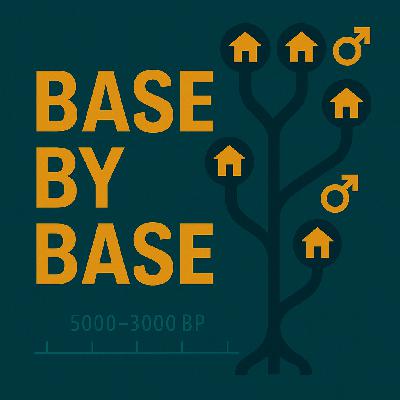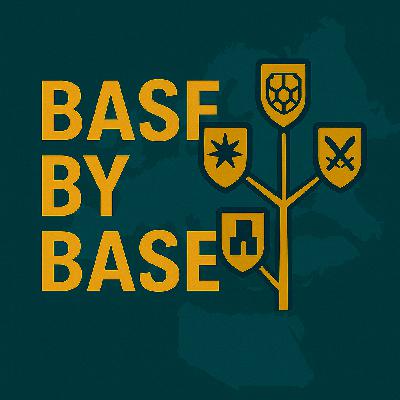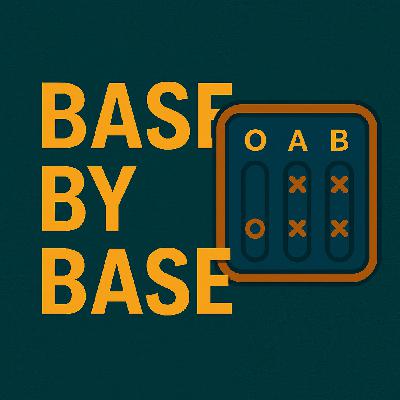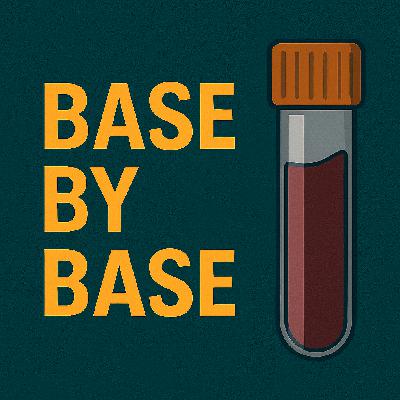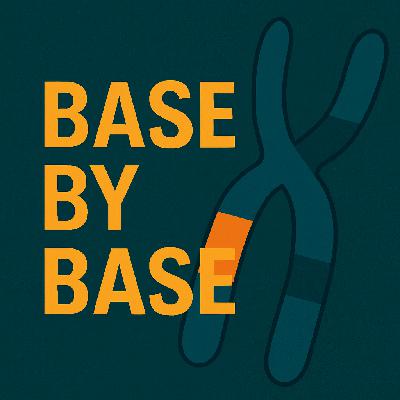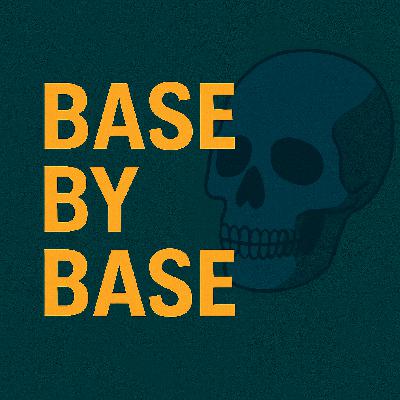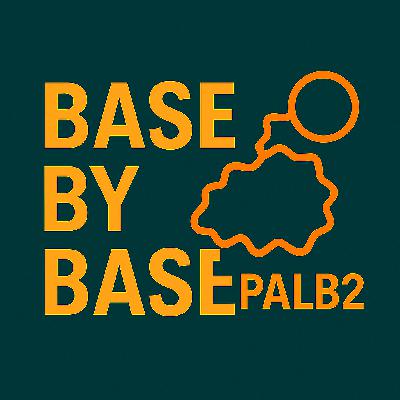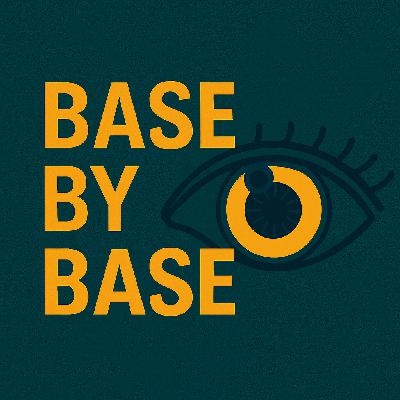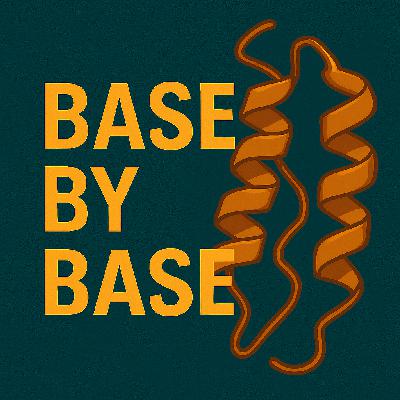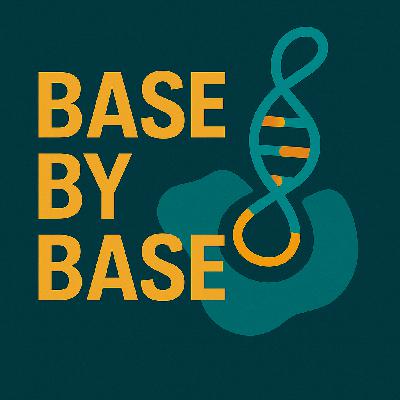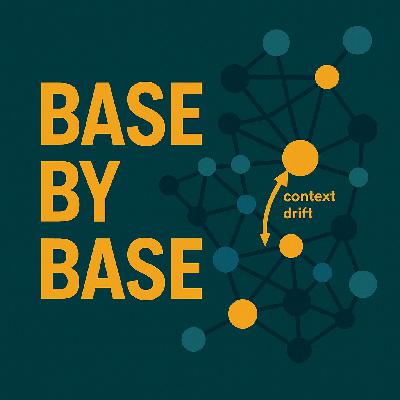148: Systematic Minigene-Based Splicing Analysis and Tentative Clinical Classification of 52 CHEK2 Splice-Site Variants
Description
️ Episode 148: Systematic Minigene-Based Splicing Analysis and Tentative Clinical Classification of 52 CHEK2 Splice-Site Variants
In this episode of PaperCast Base by Base, we explore a comprehensive functional assessment of splice-site variants in CHEK2 using reporter minigenes, revealing how disrupted pre-mRNA splicing contributes to hereditary breast cancer risk and how these readouts can support clinical variant classification.
Study Highlights:
The authors screened 128 intron–exon boundary variants from large breast cancer cohorts with in silico tools and selected 52 candidates for minigene assays that collectively span all 15 CHEK2 exons.
In transfected MCF-7 cells, 46 of the 52 variants impaired splicing, frequently abolishing the full-length transcript and generating a remarkably complex set of 89 annotated RNA isoforms through exon skipping, intron retention, and alternative splice-site usage.
Several transcripts introduced premature termination codons consistent with predicted nonsense-mediated decay, while a minority preserved the open reading frame or altered the 5′UTR, illustrating diverse molecular consequences.
A notable mechanistic finding was activation of a rare noncanonical TG acceptor site by variant c.684-2A>G, with exon 6 enhancer motifs mapped as critical for this atypical splice-site recognition.
Incorporating minigene readouts into an ACMG/AMP-inspired Bayesian framework enabled tentative reclassification of 32 variants, including 27 as pathogenic or likely pathogenic and 5 as likely benign, while 20 remained VUS due to complex splicing profiles.
Conclusion: Minigene-based splicing assays provide scalable, allele-specific functional evidence that can sharpen clinical interpretation of CHEK2 variants and should be integrated alongside population and case–control data in variant curation workflows.
Reference: Sanoguera-Miralles L, Valenzuela-Palomo A, Bueno-Martínez E, Esteban-Sánchez A, Lorca V, Llinares-Burguet I, García-Álvarez A, Pérez-Segura P, Infante M, Easton DF, Devilee P, Vreeswijk MPG, de la Hoya M, Velasco-Sampedro EA. Systematic Minigene-Based Splicing Analysis and Tentative Clinical Classification of 52 CHEK2 Splice-Site Variants. Clinical Chemistry. 2024;70(1):319–338. https://doi.org/10.1093/clinchem/hvad125
License: This episode is based on an open-access article published under the Creative Commons Attribution 4.0 International License (CC BY 4.0) – https://creativecommons.org/licenses/by/4.0/
Support: If you'd like to support Base by Base, you can make a one-time or monthly donation here: https://basebybase.castos.com/
Episode Slug: systematic-minigene-based-splicing-analysis-and-tentative-clinical-classification-of-52-chek2-splice-site-variants
Keywords: CHEK2; splicing; minigene; variant classification; hereditary breast cancer

